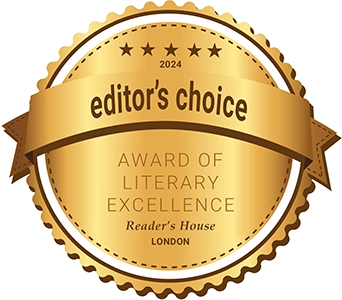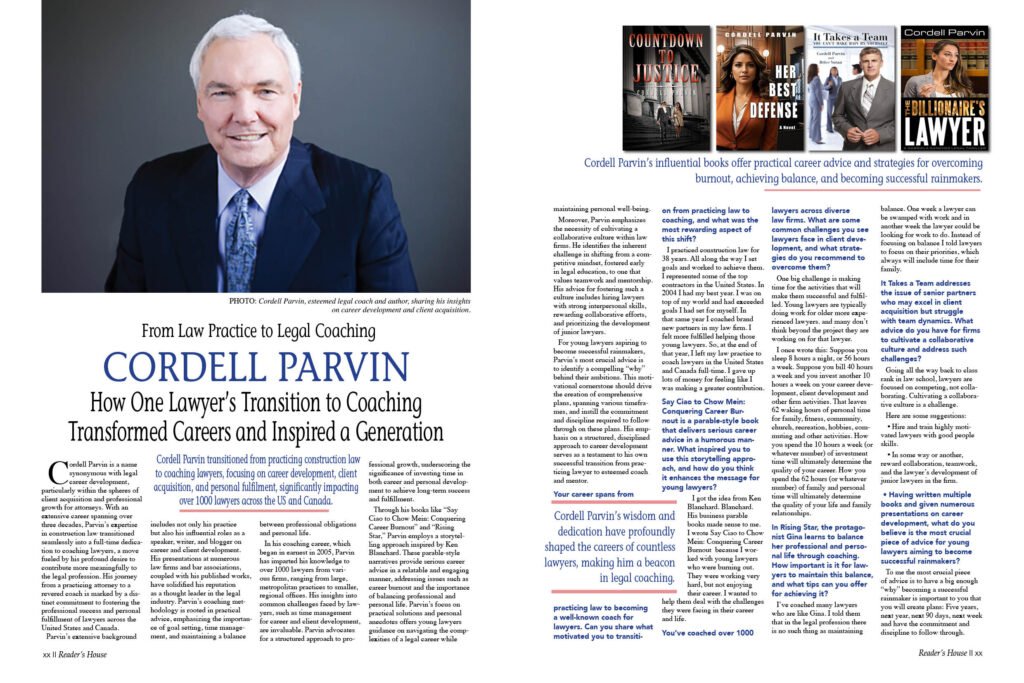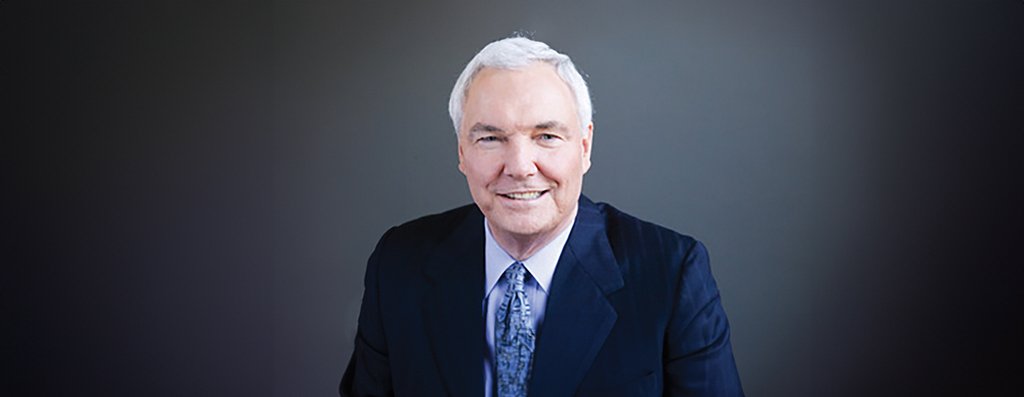How One Lawyer’s Transition to Coaching Transformed Careers and Inspired a Generation
Cordell Parvin transitioned from practicing construction law to coaching lawyers, focusing on career development, client acquisition, and personal fulfilment, significantly impacting over 1000 lawyers across the US and Canada.
Cordell Parvin is a name synonymous with legal career development, particularly within the spheres of client acquisition and professional growth for attorneys. With an extensive career spanning over three decades, Parvin’s expertise in construction law transitioned seamlessly into a full-time dedication to coaching lawyers, a move fuelled by his profound desire to contribute more meaningfully to the legal profession. His journey from a practicing attorney to a revered coach is marked by a distinct commitment to fostering the professional success and personal fulfillment of lawyers across the United States and Canada.
Parvin’s extensive background includes not only his practice but also his influential roles as a speaker, writer, and blogger on career and client development. His presentations at numerous law firms and bar associations, coupled with his published works, have solidified his reputation as a thought leader in the legal industry. Parvin’s coaching methodology is rooted in practical advice, emphasizing the importance of goal setting, time management, and maintaining a balance between professional obligations and personal life.
In his coaching career, which began in earnest in 2005, Parvin has imparted his knowledge to over 1000 lawyers from various firms, ranging from large, metropolitan practices to smaller, regional offices. His insights into common challenges faced by lawyers, such as time management for career and client development, are invaluable. Parvin advocates for a structured approach to professional growth, underscoring the significance of investing time in both career and personal development to achieve long-term success and fulfillment.
Through his books like “Say Ciao to Chow Mein: Conquering Career Burnout” and “Rising Star,” Parvin employs a storytelling approach inspired by Ken Blanchard. These parable-style narratives provide serious career advice in a relatable and engaging manner, addressing issues such as career burnout and the importance of balancing professional and personal life. Parvin’s focus on practical solutions and personal anecdotes offers young lawyers guidance on navigating the complexities of a legal career while maintaining personal well-being.
Moreover, Parvin emphasizes the necessity of cultivating a collaborative culture within law firms. He identifies the inherent challenge in shifting from a competitive mindset, fostered early in legal education, to one that values teamwork and mentorship. His advice for fostering such a culture includes hiring lawyers with strong interpersonal skills, rewarding collaborative efforts, and prioritizing the development of junior lawyers.
For young lawyers aspiring to become successful rainmakers, Parvin’s most crucial advice is to identify a compelling “why” behind their ambitions. This motivational cornerstone should drive the creation of comprehensive plans, spanning various timeframes, and instill the commitment and discipline required to follow through on these plans. His emphasis on a structured, disciplined approach to career development serves as a testament to his own successful transition from practicing lawyer to esteemed coach and mentor.

Your career spans from practicing law to becoming a well-known coach for lawyers. Can you share what motivated you to transition from practicing law to coaching, and what was the most rewarding aspect of this shift?
I practiced construction law for 38 years. All along the way I set goals and worked to achieve them. I represented some of the top contractors in the United States. In 2004 I had my best year. I was on top of my world and had exceeded goals I had set for myself. In that same year I coached brand new partners in my law firm. I felt more fulfilled helping those young lawyers. So, at the end of that year, I left my law practice to coach lawyers in the United States and Canada full-time. I gave up lots of money for feeling like I was making a greater contribution.
Say Ciao to Chow Mein: Conquering Career Burnout is a parable-style book that delivers serious career advice in a humorous manner. What inspired you to use this storytelling approach, and how do you think it enhances the message for young lawyers?
I got the idea from Ken Blanchard. Blanchard. His business parable books made sense to me. I wrote Say Ciao to Chow Mein: Conquering Career Burnout because I worked with young lawyers who were burning out. They were working very hard, but not enjoying their career. I wanted to help them deal with the challenges they were facing in their career and life.
You’ve coached over 1000 lawyers across diverse law firms. What are some common challenges you see lawyers face in client development, and what strategies do you recommend to overcome them?
One big challenge is making time for the activities that will make them successful and fulfilled. Young lawyers are typically doing work for older more experienced lawyers. and many don’t think beyond the project they are working on for that lawyer.
I once wrote this: Suppose you sleep 8 hours a night, or 56 hours a week. Suppose you bill 40 hours a week and you invest another 10 hours a week on your career development, client development and other firm activities. That leaves 62 waking hours of personal time for family, fitness, community, church, recreation, hobbies, commuting and other activities. How you spend the 10 hours a week (or whatever number) of investment time will ultimately determine the quality of your career. How you spend the 62 hours (or whatever number) of family and personal time will ultimately determine the quality of your life and family relationships.
In Rising Star, the protagonist Gina learns to balance her professional and personal life through coaching. How important is it for lawyers to maintain this balance, and what tips can you offer for achieving it?
I’ve coached many lawyers who are like Gina. I told them that in the legal profession there is no such thing as maintaining balance. One week a lawyer can be swamped with work and in another week the lawyer could be looking for work to do. Instead of focusing on balance I told lawyers to focus on their priorities, which always will include time for their family.
It Takes a Team addresses the issue of senior partners who may excel in client acquisition but struggle with team dynamics. What advice do you have for firms to cultivate a collaborative culture and address such challenges?
Going all the way back to class rank in law school, lawyers are focused on competing, not collaborating. Cultivating a collaborative culture is a challenge.
Here are some suggestions:
• Hire and train highly motivated lawyers with good people skills.
• In some way or another, reward collaboration, teamwork, and the lawyer’s development of junior lawyers in the firm.
• Having written multiple books and given numerous presentations on career development, what do you believe is the most crucial piece of advice for young lawyers aiming to become successful rainmakers?
To me the most crucial piece of advice is to have a big enough “why” becoming a successful rainmaker is important to you that you will create plans: Five years, next year, next 90 days, next week and have the commitment and discipline to follow through.




